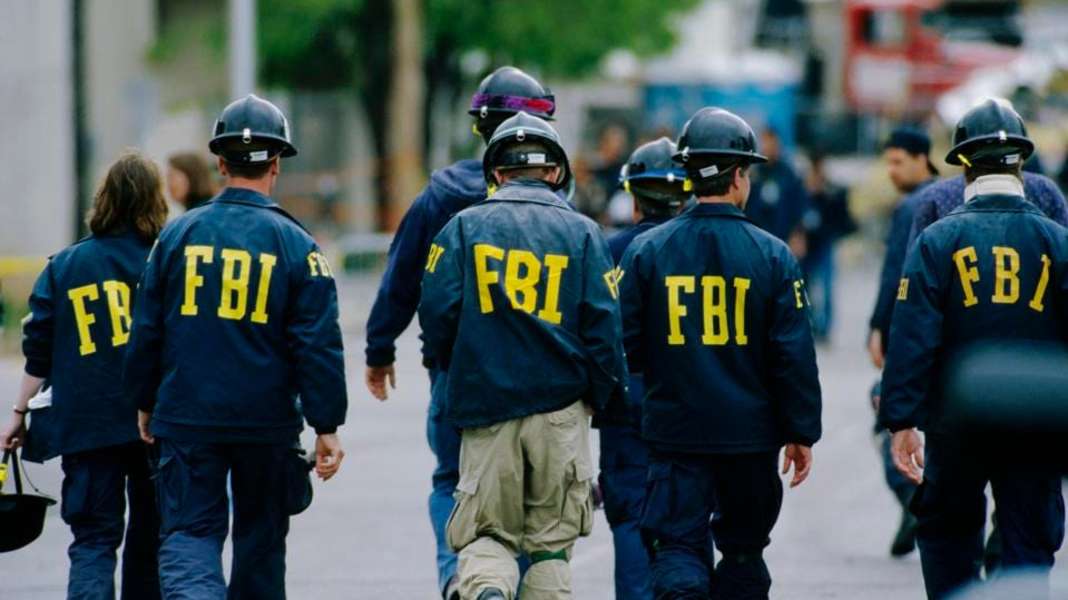As its primary law enforcement agency and a key organization for US national security, the Federal Bureau of Investigation (FBI) runs a stringent recruitment process for its Special Agents. Known as the Special Agent Selection System (SASS), this 10-step process covers everything from cognitive ability to physical fitness and takes around 12 months to complete.
After an initial application and screening process, the first step candidates need to prepare for is the Phase 1 Test.
This computerized exam is three hours long and is taken in a proctored environment. It is designed to be purposefully challenging to ensure those that who pass are fully qualified for this demanding profession. With that in mind, it's important to know exactly what to expect and how best to prepare.
The purpose of the FBI Phase 1 Test
As the nature of its work is so diverse, the FBI encourages applications from a diverse candidate pool. It looks for people from different backgrounds - with differing skills and experience - that can help it respond effectively to new security threats and criminal activity.
There are however certain attributes it does require of every successful applicant, and these are what the Phase 1 Test is designed to evaluate.
A high level of critical thinking and reasoning ability are two such attributes. The Phase 1 Test measures these through a series of multiple-choice questions that challenge your natural aptitude for complex problem-solving.
Just as important is how well-suited your behaviors and personality are to the role of a Special Agent, and how closely aligned you are with the core values of the FBI. These include upholding the Constitution of the United States and respecting the dignity of the citizens it serves to protect.
The FBI's core values also include:
- Compassion
- Fairness
- Integrity
- Accountability
- Leadership
- Diversity
To evaluate your alignment with these values, and to measure personal qualities deemed essential for a Special Agent, the FBI Phase 1 Test asks questions relating to your values, attitudes, and typical behaviors.
FBI Phase 1 Test Structure
The Phase 1 Test is structured into five individual sections, all taken in a single sitting:
- Logic-based reasoning
- Figural reasoning
- Situational judgment
- Personality assessment
- Preferences and interests
To help you prepare, each section of the test is outlined in more detail below.
Logic-based reasoning
The logic-based reasoning section is a form of verbal reasoning test. For each question, you'll be given a short paragraph of text in which certain statements are made, along with five possible conclusions.
Your task is to analyze the statements and determine which of the five conclusions given is a valid inference. There are four types of statements you'll need to interpret:
- 'All' statements
- 'No' statements
- 'Some' statements
- 'If-then' statements
Each statement type requires you to apply a different form of logic. There are 11 questions in total in this section of the test.
Figural reasoning
The figural reasoning section is another measure of logic and problem-solving, this time using visual cues instead of words.
Questions are given as a sequence of shapes and patterns with one part of that sequence missing. To solve the problem you'll need to correctly identify the rules of the sequence and select the missing part from five multiple-choice answers.
The rules may apply to one or various aspects of a sequence, for example, shape color, number of shapes or sides, or shape rotation. You may have come across something similar if you've ever taken an abstract reasoning test, and practice versions of these make for good preparation here.
There are nine questions to complete in this section.
Situational judgment
This section is a typical situational judgment test, designed to explore your professional behaviors and how you're likely to handle certain situations typically encountered by FBI Special Agents.
There are 19 questions to answer here, each of which will detail a hypothetical but realistic work-based scenario. Each scenario will be accompanied by five response options, all different in their approach, and you must select which course of action you would take under the circumstances.
Unlike the logic-based and figural reasoning tests, there are no right or wrong answers here. This section is all about your judgment and your understanding of what constitutes effective professional behavior.
Personality assessment
The personality assessment is exactly what it sounds like - an evaluation of your personality that helps FBI recruiters understand how well-suited you are to the nature of the profession.
It uses pairs of statements presented in groups of five. For each statement pair you'll need to select which you agree with more and to what extent. The statements do not relate to each other, so it can often be difficult to pick which one most applies to you. You are not able to take a neutral position though and must pick one over the other.
This section of the test is adaptive, meaning how you respond to each set of statements will influence the next set you're given, with 100 statement pairs to work through in total.
Preferences and interests
This section of the test is similar to the personality assessment in that it explores the character traits and qualities required of a special agent and the extent to which you possess them.
The questions are presented in a different format though. Each is given as a single statement and you'll need to rank them on a sliding scale from 'strongly agree' to 'strongly disagree'. There is the option to remain neutral in this section by choosing the 'neither agree nor disagree' response.
There are 37 statements to work through in the preferences and interests section.
How to prepare for the FBI Phase 1 Test
Take practice tests
The best way to prepare for your FBI Phase 1 Test is to take plenty of practice tests, particularly for the logic-based and figural reasoning sections.
Through regular practice, you'll become increasingly familiar with this type of assessment and thus more confident in completing it. You'll train your brain to become more analytical and get quicker at each type of problem-solving.
Pay attention to the detail
Read each question and all multiple-choice options carefully, paying close attention to every detail. This is especially important when completing the text-based questions in the logical reasoning test.
Here you'll need to look out for particular words, for example, 'none', 'many', and 'whenever'. These indicate the type of statement you're dealing with and the logic you'll need to apply.
Learn to answer instinctively
When it comes to the personality, preferences and interests, and situational judgment sections, the FBI is looking for honesty, not a response you think it wants to hear.
The more practice you put in the more you'll learn to answer based on gut instinct rather than reading too much into the question. This is the best way to give a true reflection of yourself and avoid getting caught out.
Build up to a three-hour mock test
Three hours is a long time for anyone to maintain full concentration and it may take some practice to work up to it.
Start with shorter sessions or practice tests and gradually work your way up until you're confident you can work with a sharp mind for the full duration.
Don't ignore physical preparation
How you prepare physically can impact your mental agility so don't neglect this. Get a good night's sleep before test day, eat a healthy breakfast and be sure to stay hydrated.
This will help with concentration and ensure you put in your best effort on the day.
The Day of the Test
The FBI administers the Phase 1 Test through partner organization PSI Services (PSI). If you're eligible to take the test, PSI will email you an invitation to book your test date at one of its local assessment centers. This must be within 21 days from the date of your invitation.
On the day you'll need to verify your identity with your driver's license. If this is not a photo license you'll need to present another form of photo ID.
You'll then sit the three-hour computerized exam under the supervision of PSI proctors. You will not be allowed to make notes or use reference materials. Talking, eating, drinking, and using the restroom are also prohibited during the test.
It's important to note that personal belongings are not permitted inside the testing center, including mobile phones. Do not take anything you don't need, and be sure to arrive in plenty of time, as you will not be allowed to take the test if you are late.
After the FBI Phase 1 Test
All candidates will be informed if they have passed or failed the FBI Phase 1 Test within 30 days of their test date.
If you are successful you'll be asked to attend a meet and greet session, where you'll get to chat with an experienced Special Agent and learn more about life in the FBI. You'll also be asked to expand on the information provided in your application to further assess your suitability.
This information will be considered along with your Phase 1 Test performance, and the evaluating team will decide if you have what it takes to progress to Phase 2 testing. The timeframe for this part of the process is around 16 weeks.
Frequently Asked Questions
Can I retake the FBI Phase 1 Test?
If you fail the Phase 1 Test on your first attempt you may be invited to resit the exam after a 90 window has passed, though this is not guaranteed. Failure on your second attempt will result in your removal from the application process, and you will not be eligible to reapply in the future.
Do I need previous work experience to join the FBI?
To apply for the role of Special Agent you must have the qualifying amount of full-time work experience - two years if you hold a bachelor's degree and one year if you hold a master's or advanced-level degree. As well as requiring a college degree, this work experience must involve some sort of leadership, managerial or supervisory responsibility.
How is the FBI Phase 1 Test scored?
As a computerized exam, the FBI Phase 1 Test uses algorithmic scoring, the exact nature of which is unknown. What we do know is that your final score is a combination of all five assessments, rather than an individual score for each section.
What is a good score on the FBI Phase 1 Test?
This is difficult to answer as the FBI does not release information on test results or average scores, nor does it provide candidates with their exact scores. You will only be given a pass or fail for the exam.
How many candidates are invited to the FBI Phase 2 Test?
To become a Special Agent in the FBI is an aspiration of many and competition is fierce. Of the thousands of candidates that apply and take the Phase 1 Test, around just 30% are invited to take part in Phase 2 testing.
What skills do I need to become an FBI Special Agent?
The FBI looks for a broad range of skills and these vary according to the exact role played by the Special Agent in question. All candidates, however, will be expected to demonstrate core competencies to a high degree. These include communication, organization, planning, initiative, collaboration, problem-solving, leadership, and adaptability.







